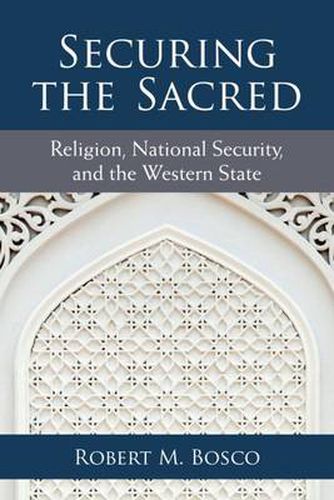Readings Newsletter
Become a Readings Member to make your shopping experience even easier.
Sign in or sign up for free!
You’re not far away from qualifying for FREE standard shipping within Australia
You’ve qualified for FREE standard shipping within Australia
The cart is loading…






Since the terrorist attacks of September 11, 2001, Western nations have increasingly recognized religion as a consideration in domestic and foreign policy. In Securing the Sacred, an empirical comparison of the securitisation of Islam in Britain, France, and the U.S., Robert M. Bosco argues that religion is not a palpable object but rather a category of phenomena defined by the discourses and politics of both religious and state elites. Despite significant theoretical distinctions between securitisation on the domestic and the international levels, he finds that the outcome of addressing religion within the context of security hinges upon partnerships. Whereas states may harness the power of international allies, they cannot often find analogous domestic allies; therefore, states that attempt to securitise religion at home are more vulnerable to counterattack and more likely to abandon their efforts.
Securing the Sacred makes a significant contribution to the fields of political theory, international relations, Islamic studies, and security/military studies.
$9.00 standard shipping within Australia
FREE standard shipping within Australia for orders over $100.00
Express & International shipping calculated at checkout
Since the terrorist attacks of September 11, 2001, Western nations have increasingly recognized religion as a consideration in domestic and foreign policy. In Securing the Sacred, an empirical comparison of the securitisation of Islam in Britain, France, and the U.S., Robert M. Bosco argues that religion is not a palpable object but rather a category of phenomena defined by the discourses and politics of both religious and state elites. Despite significant theoretical distinctions between securitisation on the domestic and the international levels, he finds that the outcome of addressing religion within the context of security hinges upon partnerships. Whereas states may harness the power of international allies, they cannot often find analogous domestic allies; therefore, states that attempt to securitise religion at home are more vulnerable to counterattack and more likely to abandon their efforts.
Securing the Sacred makes a significant contribution to the fields of political theory, international relations, Islamic studies, and security/military studies.